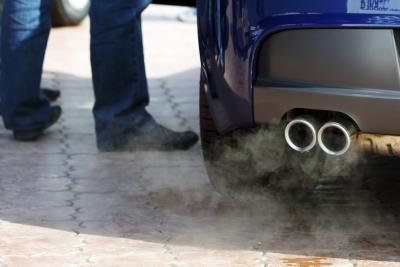
Exhaust gas recirculation systems aren't exactly the most glamorous systems in the average car, but they do perform several very important jobs. An EGR might not help you get where you're going any faster or looking any better, but a working one will get you there a good deal cleaner and cheaper.
An EGR valve works by recirculating used exhaust gases into your engine. These gases contain unburned fuel but very little oxygen, and they're very hot. A hot intake charge carries less oxygen, so a working EGR system effectively makes your engine act smaller than it really is. In terms of driving, an EGR valve that's stuck open will cause a noticeable drop in horsepower at the very least. Along with that may come detonation -- "knock" or "ping" -- under hard acceleration, and the attendant cylinder misfires. The engine will also see an open EGR valve as a massive vacuum leak, so expect hard starting and a very rough idle. An EGR stuck closed or clogged with carbon won't exhibit many symptoms, since engines don't technically need them to run. But expect a very noticeable drop in fuel economy, a noticeable gasoline smell from the exhaust pipe, a very hot catalytic converter, or all of the above.
All modern vehicles monitor the EGR system, so any fault with the system should trigger a check-engine light. You'll get one anyway if the engine ends up detonating, misfiring or running rich; all of these will trigger diagnostic codes. But you should find EGR diagnostic codes along with them if the EGR is the source of the problem.